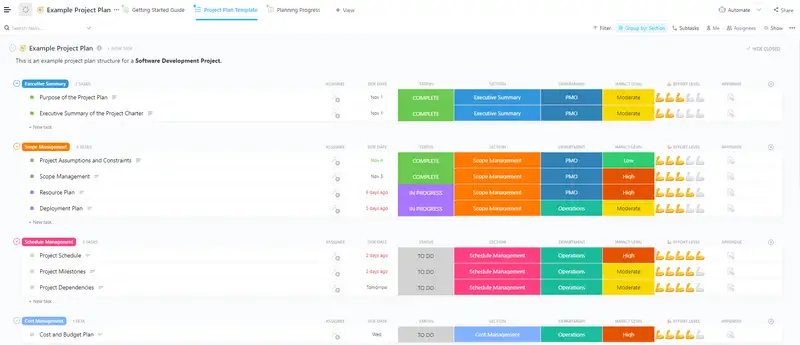

With the help of this practical Server Migration Project Plan Template, you can efficiently handle your tasks and set up an effective server migration procedure.
Server migration can be a tricky task, but with the right plan in place it doesn’t have to be overwhelming. Follow these steps to ensure that you have a successful server migration project plan:
Review your existing server environment and determine what applications are running, where they are located, and who is using them. Create a detailed list of all the applications and services you need to migrate. Use Docs in ClickUp to compile information on all applications and services needing to be migrated.
Choose a new hosting provider that meets your needs and will provide the best performance for your applications. Consider factors like cost, scalability, storage requirements, and support availability when making your selection. Use custom fields in ClickUp to track key data points like cost and scalability when comparing hosting providers.
Create a step-by-step plan for migrating each application or service from the old server to the new one without any service interruptions or data loss. This should include data transfer schedule, testing activities, notifications for end users and more. Build out the entire migration plan using tasks within ClickUp for tracking progress along the way.
Once everything has been tested thoroughly and no issues have surfaced, it's time to execute the migration plan according to schedule - ensuring minimal downtime or user disruption during the transition period. Use Board view in ClickUp to easily keep track of which tasks have been completed (or not) throughout each step of the migration process.
After your application has been launched in its new environment monitor its performance closely for any signs of instability or errors that may require further investigation or fixes. Use Dashboards in ClickUp as an overview tool for monitoring performance post launch - allowing you spot any issues quickly without having to dig deep into each individual component.